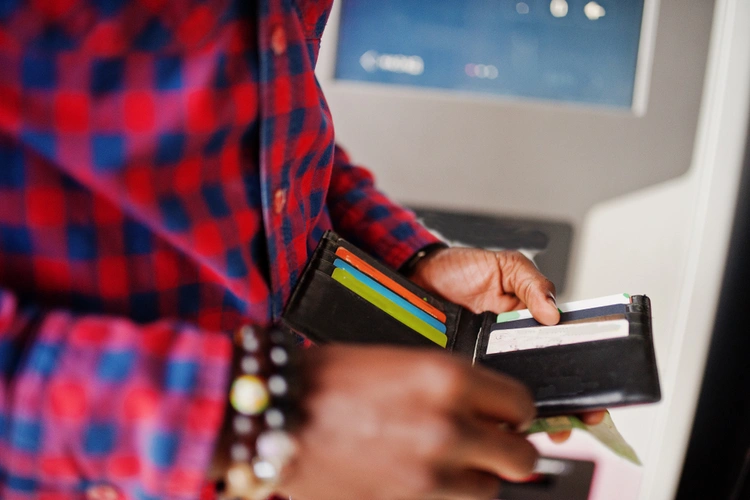How many credit cards can I have?
There’s no specific limit on how many credit cards you can have. If you have a strong credit history, you may qualify for multiple credit cards. But if your credit isn’t great, you might find it harder to get approved.
Before deciding to take out another card, consider:
-
How you plan to use the card: Will it be for everyday expenses, emergencies, or rewards like cashback?
-
What type of borrower you are: Are you good at keeping up with multiple due dates, or is there a risk of missing payments?
Advantages of having multiple credit cards
-
More credit: Having extra credit can be a financial safety net in emergencies.
-
Access to different benefits: Depending on your eligibility, each card might offer different benefits, such as: 0% interest periods, cashback on purchases, air miles for travel, rewards points for spending
-
Building your credit score: If you use your cards responsibly, make payments on time and stay within your credit limits, your credit score can improve. This can make it easier to get approved for loans or mortgages in the future.
Disadvantages of having multiple credit cards
-
More payments to keep track of: The more cards you have, the more payment deadlines you’ll need to keep track of, increasing the risk of missing a payment.
-
Risk of debt: If you have had issues with overspending in the past, having multiple cards could lead to you taking on more debt than you can afford.
-
Could have a negative effect on your score if not used responsibly. Late or missed payments or spending a high portion of your credit limit could cause your score to go down.
Does having more than one credit card affect my credit score?
Yes, having more than one credit card can affect your credit score, both positively and negatively, depending on how you manage them. Here’s how it can impact your score:
| Positive effects | Negative effects |
|
Low credit utilisation. If you spread your spending across multiple cards and keep your balances low, your overall credit utilisation (the percentage of your credit limit you're using) will be lower. This can boost your score since low credit utilisation is seen as responsible behavior. |
High credit utilisation. If you use a large portion of your available credit on multiple cards, this can increase your credit utilisation ratio, which may lower your score. |
|
Good payment history. Making payments on time across all your credit cards shows lenders that you are reliable, which positively impacts your score. |
Missed payments. More credit cards mean more payment dates to track. Missing payments or paying late can hurt your score significantly. |
|
Credit history length. Having multiple cards over time can help build a longer credit history, which is a factor in improving your score. |
Hard inquiries. Every time you apply for a new credit card, the lender will check your credit report, which results in a hard inquiry. Too many hard inquiries in a short period can temporarily lower your score. |
How many credit cards should I have?
This depends on your personal situation:
-
If you have a strong credit history and are confident in managing multiple repayments, you may handle several cards without issue.
-
However, if you’re prone to forgetting payment dates or unsure about your ability to repay what you spend, it’s best to stick to one or two cards at most.
Key things to consider before applying for multiple credit cards
-
Do you need another credit card? Avoid taking out multiple cards just for the sake of it. Stick to the number of credit cards you truly need to meet your financial goals.
-
Do you need credit card rewards? Credit card rewards can be tempting, but they only benefit you if you use them and can manage repayments responsibly.
Multiple credit cards and bad credit
If you have a bad credit history, it might be hard to get more than one credit card. Lenders may see missed payments, defaults, or high credit utilisation as a sign that you’re a risky borrower, making them less likely to approve your application.
To improve your credit score:
-
Consider a credit-builder card. This type of card is designed to help improve your credit score if used sensibly.
-
Make your monthly payments on time and stay well within your credit limit to build a positive credit history.
There’s no one-size-fits-all answer to how many credit cards you should have. It depends on your financial habits and ability to manage repayments.
While multiple cards offer flexibility and rewards, they also come with added responsibilities. Be mindful of your borrowing habits and avoid taking on more credit than you can handle.
How to cancel a credit card
If you’ve taken out more than one credit card and have since had a change of heart, you certainly can cancel one or more of them. To do this, just:
-
clear off any outstanding balance
-
cancel any Direct Debits and transfer them to a different account
-
call your provider and let them know you want to close your account
Ocean Credit Card
See if it's a YES before you apply
- Up to £8,000 credit limit
- Checking won't affect your credit score
- Get a response in 60 seconds
39.9% APR
Representative (variable)
Intelligent Lending Ltd (credit broker). Capital One is the exclusive lender.

Disclaimer: We make every effort to ensure content is correct when published. Information on this website doesn't constitute financial advice, and we aren't responsible for the content of any external sites.






